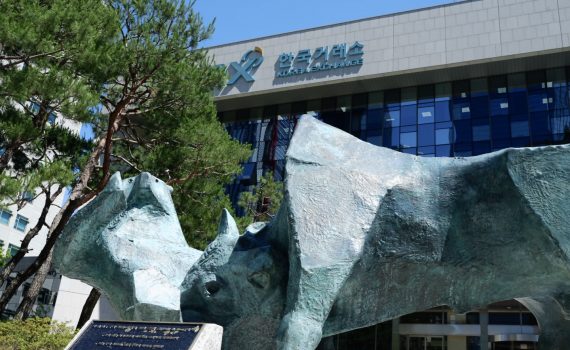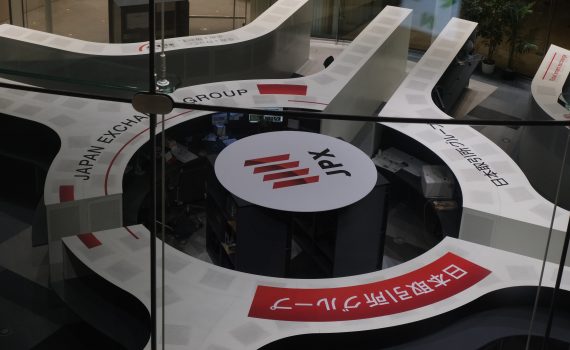Stock exchange
South Korea Presidential Election 2025: Korean stocks surge more than 2% after the country’s new president announced
- 2025-06-04
- Business
- The Young Reporter
- By: BO Chuxuan、Wang YunqiEdited by: BO Chuxuan
- 2025-06-04
South Korea’s benchmark index surged 2.7% to 2770.84 at close on Wednesday (as of 3:30 p.m. local time) after Lee Jaemyung brought the presidential election to an end with his widely-expected victory at midnight. The Korea Stock Exchange KOSPI Index opened with a rise of 1.4% after a one-day recess due to the election holiday on June 3, reaching a closing high of 2770.84 – the highest level in over 10 months. The index has gained 20.8% since April lows triggered by concerns over Trump’s reciprocal tariff policies. Financial stocks saw significant gains today, with Bookook Securities surging more than 22% while Mirae Asset Securities, SKSquares, and Shinyoung Securities rose about 13%, charging the KOSPI higher. During his campaign, Lee Jae-myung proposed a series of financial policies, such as customised financial services for the underprivileged and debt relief for small business owners. Tech stocks are also leading gains among other component stocks. Chip and appliance maker Samsung Electronics gained 1.8% to 57,800 KRW, with the semiconductor manufacturer SK Hynix surged 4.8%, and aero engine-savvy Hanwha Aerospace gained 1.2%. Lee claimed his presidency and delivered a speech in front of the National Assembly, prioritising the revision of the economy and livelihood to alleviate economic hardship as his second priority in his incoming administration, following the restoration of democracy. “From the moment my victory is confirmed, I will devote every effort to recovering your livelihoods—quickly and decisively,” he said. Lee has also promised to boost the economy by increasing government spending, improving corporate governance, strengthening labour protection, and wrapping up the ongoing tariff talks and exchange rate negotiations with the Donald Trump administration, which may contribute to stabilising market sentiment. The South Korean won strengthened against major currencies on Wednesday, trading at around 1,363 per dollar and 946 per 100 yen as …
Japan Stocks edges lower after Moody’s cuts U.S. credit ratings, export sectors shine
- 2025-05-19
- Business
- By: XIA Fan、WANG Ruoshui、ZHAO RuntongEdited by: XIA Fan、WANG Ruoshui、ZHAO Runtong
- 2025-05-19
Nikkei 225, Japan’s premier stock market index tracking the performance of 225 large publicly traded companies listed on the Tokyo Stock Exchange, opened at 37572.36 today and dropped 0.68% to 37480.37 as of the market's end. TOPIX, an index overing all domestic common stocks mostly listed on the TSE Prime Market, traded higher at midday at 2744.16, but later reversed course and closed at 2740.45, down 0.075% compared with yesterday. Performances of Japan’s stock market aligned with global cautious sentiment after Moody’s downgraded the US government's top credit ratings. Export-oriented stocks went up amid the falling market. Pharmaceutical company Daiichi Sankyo surged 7.06% to 3,698 yen, which continued the growth trend since last week. Manufacturer Konica Minolta added 6.31% to 469 yen, while Mitsubishi Heavy Industries rose 3.04% to all time highs of 2,916 yen. Beverage company Sapporo Holdings jumped 2.92%to 7613, showing a trending up from the 3-month low on May 14. Analysts believe the weakening Japanese yen fostered a favorable environment for exporters, which would boost investor confidence in companies within this sector. A number of semiconductor-related stocks fell heavily today following the turmoil in U.S. markets. Lasertec Corporation (TSE: 6920), a designer and manufacturer of semiconductor testing equipment, saw its stock price plummet 5.16% today, making it one of the notable underperformers in the Japanese market. Market Commentators attribute this drop to the close correlation between Japanese semiconductor stocks and the U.S. semiconductor market performances. The PHLX Semiconductor Index fell 1.26% as of the report published time amid volatility driven by recent U.S. tariff fluctuations. Ongoing uncertainty in the U.S. market, fueled by frequent pauses and adjustments in tariff policies, has unsettled households and businesses. Sumitomo Mitsui DS Asset Management at the beginning of this year predicted a positive trajectory for the Japanese stock market, emphasizing …


